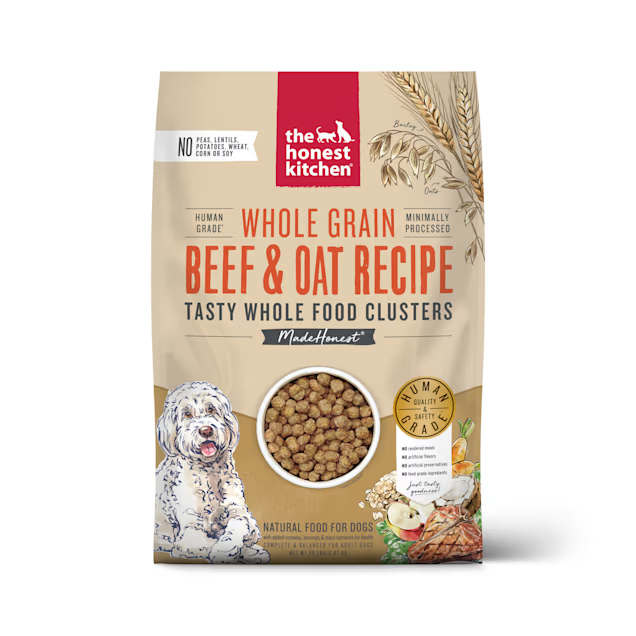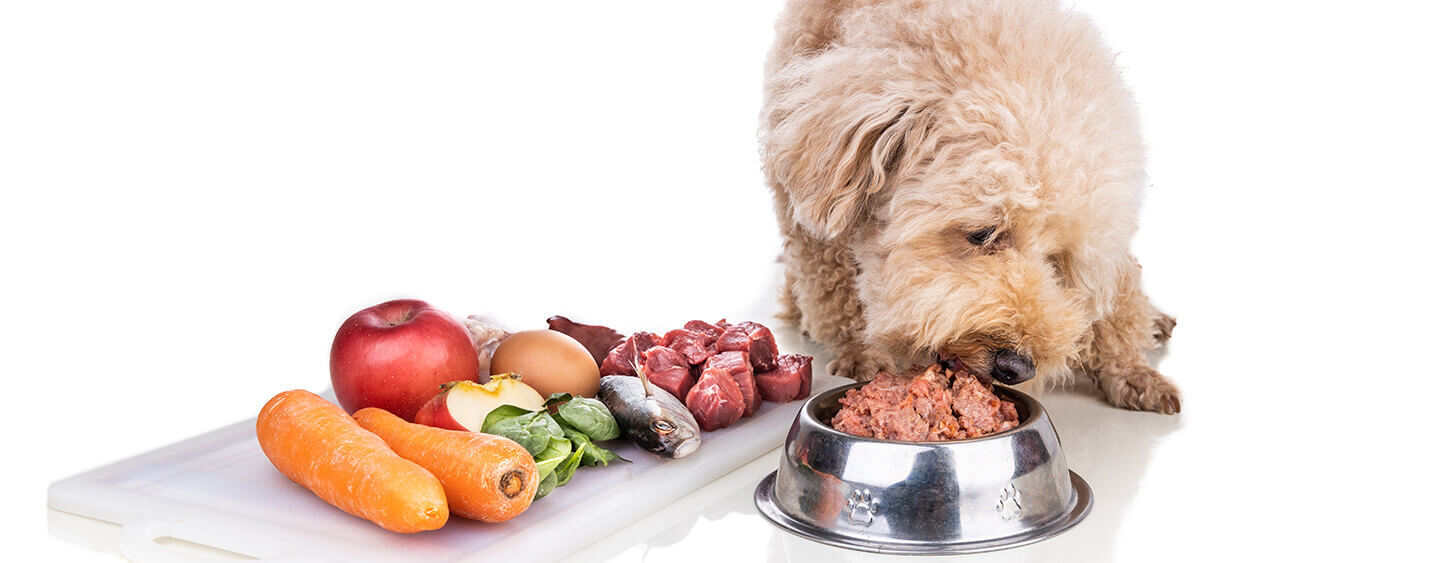Potential Dangers of Popular Dog Food Popular dog food brands can pose potential dangers to dogs, including the presence of artificial sweeteners, onions, garlic, caffeine, alcohol, macadamia nuts, dairy products, bones, and excessive salt. These ingredients can be harmful to dogs and should be avoided.
In addition, some popular dog food brands use low-quality ingredients such as corn and meat by-products, which are not suitable for canine consumption. Dog owners need to be aware of these potential dangers and choose dog food that is made with high-quality, dog-friendly ingredients.
Ensuring the safety and nutrition of our furry friends is crucial for their overall well-being.
Unhealthy Ingredients In Popular Dog Food
Popular dog food brands may contain unhealthy ingredients such as artificial sweeteners, onions and garlic, caffeine, alcohol, macadamia nuts, dairy products, bones, and excessive salt, posing potential dangers to dogs. Pet owners need to be aware of these risks and choose dog food brands that prioritize high-quality ingredients suitable for canine consumption.
Artificial Sweeteners (xylitol)
Many popular dog food brands contain artificial sweeteners such as xylitol. Xylitol is safe for human consumption but can be extremely toxic to dogs. It can lead to a rapid release of insulin in dogs, causing a sudden and dangerous drop in blood sugar levels. This can result in symptoms such as vomiting, loss of coordination, seizures, and even liver failure in severe cases.
Onions And Garlic
Onions and garlic are commonly used in human food but can be harmful to dogs. Both contain compounds called thiosulphate which can damage a dog’s red blood cells and lead to a condition called hemolytic anemia. Symptoms of onion and garlic poisoning in dogs include weakness, pale gums, vomiting, and difficulty breathing. It’s important to avoid dog food that includes onions or garlic in their ingredients list.
Caffeine
Caffeine is another ingredient found in some dog food brands that should be avoided. Just like in humans, caffeine stimulates the central nervous system in dogs. However, dogs are much more sensitive to its effects and even small amounts can cause restlessness, rapid breathing, increased heart rate, muscle tremors, and even seizures. Ensure that the dog food you choose does not contain any caffeine.
Alcohol
Alcohol is a substance that should never be given to dogs, yet some dog food brands include it in their formulations. Alcohol can cause severe symptoms in dogs such as vomiting, diarrhea, difficulty breathing, central nervous system depression, and even coma. It is important to thoroughly check the ingredients list of any dog food you are considering to make sure it does not contain any alcohol.
Macadamia Nuts
Macadamia nuts may be tasty for humans, but they are toxic to dogs. Even a small amount of macadamia nuts can cause symptoms like weakness, tremors, vomiting, increased body temperature, and difficulty walking. It’s best to avoid any dog food that includes macadamia nuts or macadamia nut products.
Dairy Products
While some dogs can tolerate small amounts of dairy products like cheese and yogurt, many dogs are lactose intolerant. Lactose intolerance can lead to symptoms such as diarrhea, vomiting, and gastrointestinal upset. Avoid dog food that contains dairy products if you know your dog cannot tolerate them.
Bones
Feeding dogs cooked bones, including those found in some dog food products, can be extremely dangerous. Cooked bones can splinter, leading to choking hazards and internal injuries. They can also cause blockages in the digestive system, which may require surgical intervention. It is best to choose dog food that does not contain any bones or bone fragments.
Salt
While dogs need some salt in their diet, too much salt can be harmful. Excessive salt intake can lead to dehydration, electrolyte imbalances, and even sodium poisoning in dogs. It’s important to choose dog food that contains an appropriate amount of salt and to avoid giving dogs salty human snacks or table scraps. In conclusion, it’s crucial to carefully examine the ingredients list of popular dog food brands to ensure they do not contain these unhealthy ingredients. By making informed choices about what we feed our furry friends, we can help keep them safe and healthy.
Recalled And Not Recommended Dog Food Brands
When it comes to feeding our furry friends, it’s crucial to make well-informed decisions about the food we give them. Unfortunately, not all dog food brands on the market are safe and healthy. Some brands have even been recalled due to the potential dangers they pose to dogs. In addition, some brands are not recommended for canine consumption due to the low-quality ingredients they contain. Let’s take a closer look at the recalled and not recommended dog food brands.
Recalled Brands
Several dog food brands have faced recalls in the past, posing serious risks to the health and well-being of dogs. Here are some of the brands that have been recalled:
- Taste of the Wild
- ORIJEN
- ACANA
- Nature’s Variety
- NutriSource
Not Recommended Brands
When it comes to feeding our furry friends, we want to ensure they are getting the best nutrition. Unfortunately, some dog food brands are not recommended due to their low-quality ingredients. These brands include:
- Ol Roy
- Gravy Train Dog Food Brand
- Dog Chow Pet Food
- IAMS Dog Foods
- Beneful Dog Food Brand
- Pedigree Pet Foods
- Great Choice Dog Food Brand
- SportMix Dog Food
It’s important to note that these brands use low-quality ingredients such as corn and meat by-products, which are not suitable for canine consumption. When choosing a dog food brand, it’s best to opt for ones that prioritize high-quality ingredients to ensure our furry friends are getting the nutrition they need.
Microbiological Hazards In Dog Food
Microbiological hazards in dog food include the presence of bacteria like Salmonella and mold fungi, which can pose risks to the health of dogs. These hazards are commonly found in both dry and wet dog foods, and can potentially lead to health issues if consumed.
Salmonella Bacteria
Salmonella bacteria are one of the most concerning microbiological hazards found in popular dog food brands. These bacteria can pose a serious threat to both dogs and their owners, as they can cause foodborne illnesses. Like humans, dogs can become infected with Salmonella from contaminated food, leading to symptoms such as diarrhea, vomiting, and fever. In some cases, these infections can be severe and even life-threatening.
Mold Fungi And Mycotoxins
Another microbiological hazard that pet owners should be aware of is the presence of mold fungi and their metabolites, known as mycotoxins. Mold fungi can develop on dog food that has been improperly stored or is past its expiration date. When dogs consume food contaminated with mold and mycotoxins, they can experience a range of health issues, including digestive problems, organ damage, and even neurological disorders. To prevent the risk of Salmonella and mold contamination, it is crucial for pet owners to carefully select high-quality dog food brands and store them properly. Additionally, it’s important to pay attention to any recalls or warnings issued by regulatory agencies regarding specific dog food products.
Preventing Microbiological Hazards
Here are some steps you can take to reduce the risk of microbiological hazards in dog food: 1. Choose reputable brands: Opt for dog food brands that have a good reputation for quality control and safety. 2. Check for recalls: Regularly check for recalls or warnings from regulatory agencies regarding specific dog food products to stay informed. 3. Proper storage: Store dog food in a cool, dry place and ensure the packaging is tightly sealed to prevent moisture and mold growth. 4. Follow expiration dates: Pay attention to the expiration dates on dog food and avoid feeding expired products to your pet. 5. Safe handling: Practice good hygiene when handling dog food, including washing your hands thoroughly before and after feeding your pet. 6. Consult your veterinarian: If you suspect your dog has consumed contaminated food or is showing any signs of illness, consult your veterinarian immediately. By being mindful of potential microbiological hazards in popular dog food brands and taking appropriate precautions, you can help ensure the health and well-being of your beloved furry friend.

Credit: www.petco.com
Potential Links Between Grain-free Dog Food And Canine Heart Disease
There have been concerns about potential links between grain-free dog food and canine heart disease. The FDA is currently investigating this issue amidst the growing popularity of these types of dog food.
Fda Investigation
The potential links between grain-free dog food and canine heart disease have caught the attention of the FDA. The FDA is currently investigating to determine the connection between these types of dog food and the development of heart disease in canines. This investigation was prompted by an increasing number of reports from veterinarians and dog owners who noticed a correlation between grain-free diets and heart issues in their furry companions.
Information For Dog Owners
As a responsible dog owner, it is essential to stay informed about the potential dangers that certain types of dog food may pose to your pet’s health. If your dog’s diet consists of grain-free dog food, it is crucial to be aware of the potential risk of heart disease associated with this type of diet. Keep an eye out for any symptoms such as increased fatigue, coughing, difficulty breathing, or sudden weight loss, as these can be indications of heart problems. To ensure your furry friend’s well-being, it might be a good idea to consult your veterinarian and discuss the best diet options for your dog. They can provide expert guidance and recommend alternative dog food options that are nutritionally balanced and pose a lower risk of heart disease. Remember, your dog’s health and happiness are in your hands, so make informed decisions when it comes to their diet.
Summary
In summary, the potential links between grain-free dog food and canine heart disease have caught the attention of the FDA, leading to an ongoing investigation. As a dog owner, it is essential to stay informed and vigilant about the potential risks associated with certain types of dog food. If your dog is on a grain-free diet, keep an eye out for any signs or symptoms of heart issues and consult your veterinarian for further guidance. Your furry companion’s health should always be a top priority.
The Risks Of Eating Dog Food For Humans
Eating dog food can pose potential dangers for humans, including the risk of bacterial contamination such as Salmonella and exposure to mold fungi and mycotoxins found in both dry and wet dog foods. It’s important to avoid consuming popular dog food brands not recommended for human consumption to ensure our health and well-being.
Health Problems In Cats
Cats are often drawn to the aroma and taste of dog food, but consuming it can lead to various health problems. While cats and dogs have similar nutritional needs, there are key differences in the way their bodies process certain nutrients. Dog food lacks specific nutrients that cats require, such as taurine, vitamin A, and arachidonic acid. These deficiencies can result in serious health issues for cats, including vision problems, heart disease, and skin disorders.
Product Recalls Due To Bacteria
Dog food is not only a potential risk for cats but can also pose dangers to humans. Over the years, there have been several product recalls due to the presence of harmful bacteria in dog food. Bacteria such as Salmonella and E. coli can contaminate the food during the manufacturing process, leading to severe illnesses in both animals and humans. These bacteria can cause symptoms like diarrhea, vomiting, abdominal pain, and in some cases, even life-threatening infections.
Pet owners must be aware of these potential dangers and take the necessary precautions to protect themselves and their pets. Handling dog food with proper hygiene practices, such as washing hands thoroughly after handling, can help minimize the risk of bacterial contamination.

Credit: www.purina.co.uk

Credit: thehill.com
Frequently Asked Questions Of Potential Dangers Of Popular Dog Food
What Dog Food Is On Recall Right Now 2023?
As of now, there is no specific dog food recall in 2023. It is recommended to stay updated on the latest news and check the FDA website for any potential recalls.
What Are The Top 10 Toxic Foods For Dogs?
The top 10 toxic foods for dogs are 1. Artificial Sweeteners (Xylitol) 2. Onions and Garlic 3. Caffeine 4. Alcohol 5. Macadamia Nuts 6. Dairy Products 7. Bones 8. Salt 9. Grapes and Raisins 10. Chocolate These foods can harm dogs and should be avoided to ensure their safety and well-being.
What Popular Dog Food Was Recalled?
One popular dog food that was recalled is Taste of the Wild.
Conclusion
To ensure the health and well-being of your furry friend, it is crucial to be aware of the potential dangers associated with popular dog food. From artificial sweeteners like xylitol to onions and garlic, certain ingredients can be harmful to dogs.
Additionally, low-quality ingredients such as corn and meat by-products can be found in some dog food brands. To avoid these risks, it is important to carefully read labels and choose high-quality dog food that meets your pet’s nutritional needs. Remember, your dog’s health should always be a top priority.

